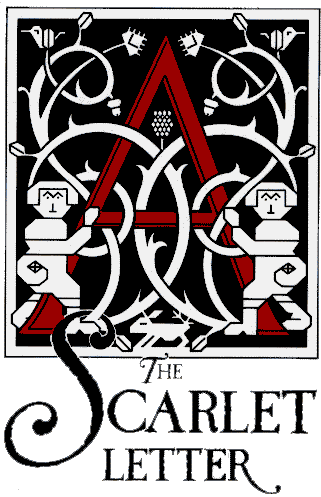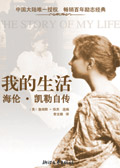奥兰多orlando (英文版)作者:弗吉尼亚·伍尔芙-第30部分
按键盘上方向键 ← 或 → 可快速上下翻页,按键盘上的 Enter 键可回到本书目录页,按键盘上方向键 ↑ 可回到本页顶部!
————未阅读完?加入书签已便下次继续阅读!
be outlined; writhing in contorted intricacy against the sky。 Here and there; on one of the hills which rose above London; was a stark gallows tree; with a corpse nailed to rot or parch on its cross; for danger and insecurity; lust and violence; poetry and filth swarmed over the tortuous Elizabethan highways and buzzed and stank—Orlando could remember even now the smell of them on a hot night—in the little rooms and narrow pathways of the city。 Now—she leant out of her window—all was light; order; and serenity。 There was the faint rattle of a coach on the cobbles。 She heard the far–away cry of the night watchman—’Just twelve o’clock on a frosty morning’。 No sooner had the words left his lips than the first stroke of midnight sounded。 Orlando then for the first time noticed a small cloud gathered behind the dome of St Paul’s。 As the strokes sounded; the cloud increased; and she saw it darken and spread with extraordinary speed。 At the same time a light breeze rose and by the time the sixth stroke of midnight had struck the whole of the eastern sky was covered with an irregular moving darkness; though the sky to the west and north stayed clear as ever。 Then the cloud spread north。 Height upon height above the city was engulfed by it。 Only Mayfair; with all its lights shining。 burnt more brilliantly than ever by contrast。 With the eighth stroke; some hurrying tatters of cloud sprawled over Piccadilly。 They seemed to mass themselves and to advance with extraordinary rapidity towards the west end。 As the ninth; tenth; and eleventh strokes struck; a huge blackness sprawled over the whole of London。 With the twelfth stroke of midnight; the darkness was plete。 A turbulent welter of cloud covered the city。 All was darkness; all was doubt; all was confusion。 The Eighteenth century was over; the Nieenth century had begun。
CHAPTER 5。
The great cloud which hung; not only over London; but over the whole of the British Isles on the first day of the nieenth century stayed; or rather; did not stay; for it was buffeted about constantly by blustering gales; long enough to have extraordinary consequences upon those who lived beneath its shadow。 A change seemed to have e over the climate of England。 Rain fell frequently; but only in fitful gusts; which were no sooner over than they began again。 The sun shone; of course; but it was so girt about with clouds and the air was so saturated with water; that its beams were discoloured and purples; oranges; and reds of a dull sort took the place of the more positive landscapes of the eighteenth century。 Under this bruised and sullen canopy the green of the cabbages was less intense; and the white of the snow was muddied。 But what was worse; damp now began to make its way into every house—damp; which is the most insidious of all enemies; for while the sun can be shut out by blinds; and the frost roasted by a hot fire; damp steals in while we sleep; damp is silent; imperceptible; ubiquitous。 Damp swells the wood; furs the kettle; rusts the iron; rots the stone。 So gradual is the process; that it is not until we pick up some chest of drawers; or coal scuttle; and the whole thing drops to pieces in our hands; that we suspect even that the disease is at work。
Thus; stealthily and imperceptibly; none marking the exact day or hour of the change; the constitution of England was altered and nobody knew it。 Everywhere the effects were felt。 The hardy country gentleman; who had sat down gladly to a meal of ale and beef in a room designed; perhaps by the brothers Adam; with classic dignity; now felt chilly。 Rugs appeared; beards were grown; trousers were fastened tight under the instep。 The chill which he felt in his legs the country gentleman soon transferred to his house; furniture was muffled; walls and tables were covered; nothing was left bare。 Then a change of diet became essential。 The muffin was invented and the crumpet。 Coffee supplanted the after–dinner port; and; as coffee led to a drawing–room in which to drink it; and a drawing–room to glass cases; and glass cases to artificial flowers; and artificial flowers to mantelpieces; and mantelpieces to pianofortes; and pianofortes to drawing–room ballads; and drawing–room ballads (skipping a stage or two) to innumerable little dogs; mats; and china ornaments; the home—which had bee extremely important—was pletely altered。
Outside the house—it was another effect of the damp—ivy grew in unparalleled profusion。 Houses that had been of bare stone were smothered in greenery。 No garden; however formal its original design; lacked a shrubbery; a wilderness; a maze。 What light perated to the bedrooms where children were born was naturally of an obfusc green; and what light perated to the drawing–rooms where grown men and women lived came through curtains of brown and purple plush。 But the change did not stop at outward things。 The damp struck within。 Men felt the chill in their hearts; the damp in their minds。 In a desperate effort to snuggle their feelings into some sort of warmth one subterfuge was tried after another。 Love; birth; and death were all swaddled in a variety of fine phrases。 The sexes drew further and further apart。 No open conversation was tolerated。 Evasions and concealments were sedulously practised on both sides。 And just as the ivy and the evergreen rioted in the damp earth outside; so did the same fertility show itself within。 The life of the average woman was a succession of childbirths。 She married at nieen and had fifteen or eighteen children by the time she was thirty; for twins abounded。 Thus the British Empire came into existence; and thus—for there is no stopping damp; it gets into the inkpot as it gets into the woodwork—sentences swelled; adjectives multiplied; lyrics became epics; and little trifles that had been essays a column long were now encyclopaedias in ten or twenty volumes。 But Eusebius Chubb shall be our witness to the effect this all had upon the mind of a sensitive man who could do nothing to stop it。 There is a passage towards the end of his memoirs where he describes how; after writing thirty–five folio pages one morning ‘all about nothing’ he screwed the lid of his inkpot and went for a turn in his garden。 Soon he found himself involved in the shrubbery。 Innumerable leaves creaked and glistened above his head。 He seemed to himself ‘to crush the mould of a million more under his feet’。 Thick smoke exuded from a damp bonfire at the end of the garden。 He reflected that no fire on earth could ever hope to consume that vast vegetable encumbrance。 Wherever he looked; vegetation was rampant。 Cucumbers ‘came scrolloping across the grass to his feet’。 Giant cauliflowers towered deck above deck till they rivalled; to his disordered imagination; the elm trees themselves。 Hens laid incessantly eggs of no special tint。 Then; remembering with a sigh his own fecundity and his poor wife Jane; now in the throes of her fifteenth confinement indoors; how; he asked himself; could he blame the fowls? He looked upwards into the sky。 Did not heaven itself; or that great frontispiece of heaven; which is the sky; indicate the assent; indeed; the instigation of the heavenly hierarchy? For there; winter or summer; year in year out; the clouds turned and tumbled; like whales; he pondered; or elephants rather; but no; there was no escaping the simile which was pressed upon him from a thousand airy acres; the whole sky itself as it spread wide above the British Isles was nothing but a vast feather bed; and the undistinguished fecundity of the garden; the bedroom and the henroost was copied there。 He went indoors; wrote the passage quoted above; laid his head in a gas oven; and when they found him later he was past revival。
While this went on in every part of England; it was all very well for Orlando to mew herself in her house at Blackfriars and pretend that the climate was the same; that one could still say what one liked and wear knee–breeches or skirts as the fancy took one。 Even she; at length; was forced to acknowledge that times were changed。 One afternoon in the early part of the century she was driving through St James’s Park in her old panelled coach when one of those sunbeams; which occasionally; though not often; managed to e to earth; struggled through; marbling the clouds with strange prismatic colours as it passed。 Such a sight was sufficiently strange after the clear and uniform skies of the eighteenth century to cause her to pull the window down and look at it。 The puce and flamingo clouds made her think with a pleasurable anguish; which proves that she was insensibly afflicted with the damp already; of dolphins dying in Ionian seas。 But what was her surprise when; as it struck the earth; the sunbeam seemed to call forth; or to light up; a pyramid; hecatomb; or trophy (for it had something of a banquet–table air)—a conglomeration at any rate of the most heterogeneous and ill–assorted objects; piled higgledy–piggledy in a vast mound where the statue of Queen Victoria now stands! Draped about a vast cross of fretted and floriated gold were widow’s weeds and bridal veils; hooked on to other excrescences were crystal palaces; bassites; military helmets; memorial wreaths; trousers; whiskers; wedding cakes; cannon; Christmas trees; telescopes; extinct monsters; globes; maps; elephants; and mathematical instruments—the whole supported like a gigantic coat of arms on the right side by a female figure clothed in flowing white; on the left by a portly gentleman wearing a frock–coat and sponge–bag trousers。 The incongruity of the objects; the association of the fully clothed and the partly draped; the garishness of the different colours and their plaid–like juxtapositions afflicted Orlando with the most profound dismay。 She had never; in all her life; seen anything at once so indecent; so hideous; and so monumental。 It might; and indeed it must be; the effect of the sun on the water–logged air; it would vanish with the first breeze that blew; but for all that; it looked; as she drove past; as if it were destined to endure for ever。 Nothing; she felt; sinking back into the corner of her coach; no wind; rain; sun; or thunder; could ever demolish that garish erection。 Only the noses would mottle and t
![[网王同人]colorless wind封面](http://www.baxi2.com/cover/noimg.jpg)
![[bbcsherlock]致我心中的你封面](http://www.baxi2.com/cover/22/22011.jpg)


